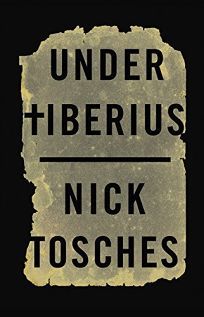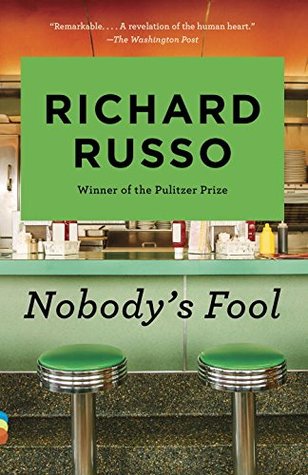
In Under Tiberius, a 2015 novel from Nick Tosches, a well-off Roman named Gaius who has been Emperor Tiberius’s speechwriter loses his job, goes to what we’d now call the Middle East, meets a scraggly Jewish thief who calls himself Iesous, and decides to work with him to fabricate a messiah named Jesus. The region is rife with would-be prophets and the like, but those guys are howling madmen or mere street preachers; Gaius knows the arts of persuasion, Jesus proves to have potential as a performer, and together they begin raking in money as well as piling up followers. The crucial thing, though, is that they begin to take their job more seriously.
One implication of Tosches’s premise is obvious: we know so little about the historical Jesus that the biblical account, which conveniently tallies with some previous prophecies, can be read as a skillful fiction—a sequel of sorts—in which, among other adjustments, the harsh God of earlier Jewish writings was softened for a new age. Tosches devotes a considerable amount of his tale to elaborating how this could’ve happened, but as ideas go it is, let us say, unsurprising. Anyone who notices that the world has more than one religion can easily conclude that they can’t all be true and that they could just as well have been dreamed up, whether consciously, as in this book, or through some collective process.
Under Tiberius has two broader aims that are far more provocative. One is to show how invented things escape the control of their inventors. As Gaius collaborates with Jesus, the latter begins to make his own choices in that role (like Galatea, the artist’s creation comes to life), which eventually takes him to a bad end. It also allows us to suppose that the historical Jesus, whoever and whatever he was, played into the desires of (at least some of) the Jews for the fulfillment of prophecy: he became the material out of which a new religion was fabricated (in the sense of made, and also in the sense of made up), and that religion was necessarily beyond his control. It even allows us to consider what might be taken as a postmodern point, that the process by which a story comes to life begins with an author but eventually passes into the hands of its audience. The novel’s second aim is to wise us up, wean us off metaphysics, arm us with roughly the same skeptical empiricism that Nassim Nicholas Taleb prescribes in The Black Swan; by dramatizing a scam, it warns us against falling prey to scams. It would like to save us from saviors. And yet the success of the scam depends on many figures, both named and unnamed, in the background of the narrator’s tale who not only buy into the scam eagerly but contribute to it—Gaius and Jesus begin to hear about miracles that the latter supposedly performed in places where he wasn’t even present—and this implies that we’re always going to need saving. The credulous are always with us.
Under Tiberius does these things exceedingly well. Tosches as a writer of nonfiction is someone I’m acquainted with through his contributions to Vanity Fair magazine. The first one I worked with, a lengthy September 2000 article recounting his quest for opium, struck me as a brilliant oddball excursion, totally unexpected and remarkably well written, and the work I’ve encountered since then has also been vivid, if less surprising. It turns out that Tosches’s fiction, to judge from this novel, is just as knowing and artful. To take just one example, Gaius, the novel’s narrator, is at first a speechwriter, as I said (one might call him a rhetor, but despite the appearance of other Latinate words in the text, that particular one isn’t used), and he employs a handful of recognizable rhetorical devices in telling his tale. There’s a reason the devil—the embodiment of deception—is often referred to as silver-tongued. I’m not equipped to judge whether the text approximates any classical-era writers, but it avoids the modern form of psychologizing, and in other ways too it has a subtly stylized, antique, or distant feel, akin to how black-and-white movies look in our age of color film.
Tosches’s methodical and ingenious tale gains in fascination as its action progresses toward Jerusalem; one can’t help wondering how its ending will accord with the biblical account. It’s flecked with descriptive flashes as well as conceptual insights and bits of mordant humor; after recounting for Gaius the many infractions that are punishable by death in what he calls the Book, Jesus remarks, “It is surprising that there are any Jews left to be executed, or Jews to execute them.” Gaius’s account, despite its knowingness, isn’t arrogant or condescending but instead marked here and there with a certain sadder-but-wiser tone. All this is enjoyable.
What’s more—I may as well say it bluntly—the things the novel does are valuable. We need to be reminded that our creations tend to gather themselves up, breathe, and take flight on their own: they tend to have consequences and allow possibilities that we don’t foresee. Tosches’s novel addresses this theme in literary and religious terms, but it applies more widely. Digital technologies are one possible example. We also need, always and forever, to have our credulity pointed out and reproved. For this, the same example could perhaps be given. Whether fiction is the best way to serve these purposes is the wrong question to ask: anything that aims to wise us up, provided only that it makes its point well, is commendable. Fiction was good enough for Voltaire in Candide, and the biblical Jesus himself relied on parables.
This review was also posted on Goodreads.
Advertisements Share this:





